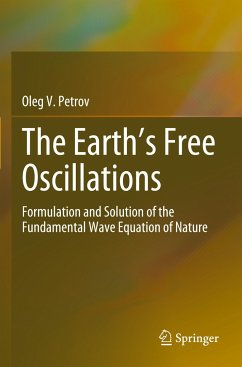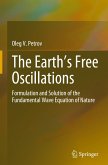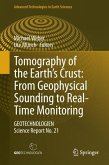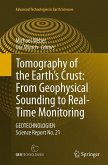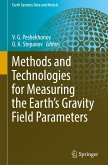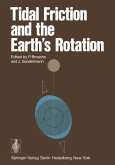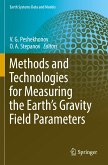This book presents the formulations and solutions of the wave equation for the Earth's free oscillations concerning the particular nodal, bifurcation, perspectival, and projective reference points within the framework of the three "great geometries" of Euclid, Lobachevsky, and Riemann.
When studying the relationship between the propagation velocity of various types of bulk and surface seismic waves with radial, spheroidal, and torsional eigen oscillations of the Earth having corresponding periods, we are struck by the fundamental problem of obtaining reference points that allow physical meaning to be attributed to all these discrete oscillatory and continuous wave phenomena that occur in nature. Several unsuccessful attempts tried to unify the relationship of discrete oscillations and the velocity of waves and light occurring in seismology and other phenomena associated with gravity and matter, using a three-dimensional visual space-time model continuous Euclidean space. Using simple and illustrative examples for describing the free oscillations of the Earth and taking into account new visible event horizons related to the velocity of waves and light propagation, the author formulated and solved the fundamental wave equation of nature in the form of the three "great theorems": Galilean, Lorentz, and Poincaré spatiotemporal transformations.
When studying the relationship between the propagation velocity of various types of bulk and surface seismic waves with radial, spheroidal, and torsional eigen oscillations of the Earth having corresponding periods, we are struck by the fundamental problem of obtaining reference points that allow physical meaning to be attributed to all these discrete oscillatory and continuous wave phenomena that occur in nature. Several unsuccessful attempts tried to unify the relationship of discrete oscillations and the velocity of waves and light occurring in seismology and other phenomena associated with gravity and matter, using a three-dimensional visual space-time model continuous Euclidean space. Using simple and illustrative examples for describing the free oscillations of the Earth and taking into account new visible event horizons related to the velocity of waves and light propagation, the author formulated and solved the fundamental wave equation of nature in the form of the three "great theorems": Galilean, Lorentz, and Poincaré spatiotemporal transformations.

